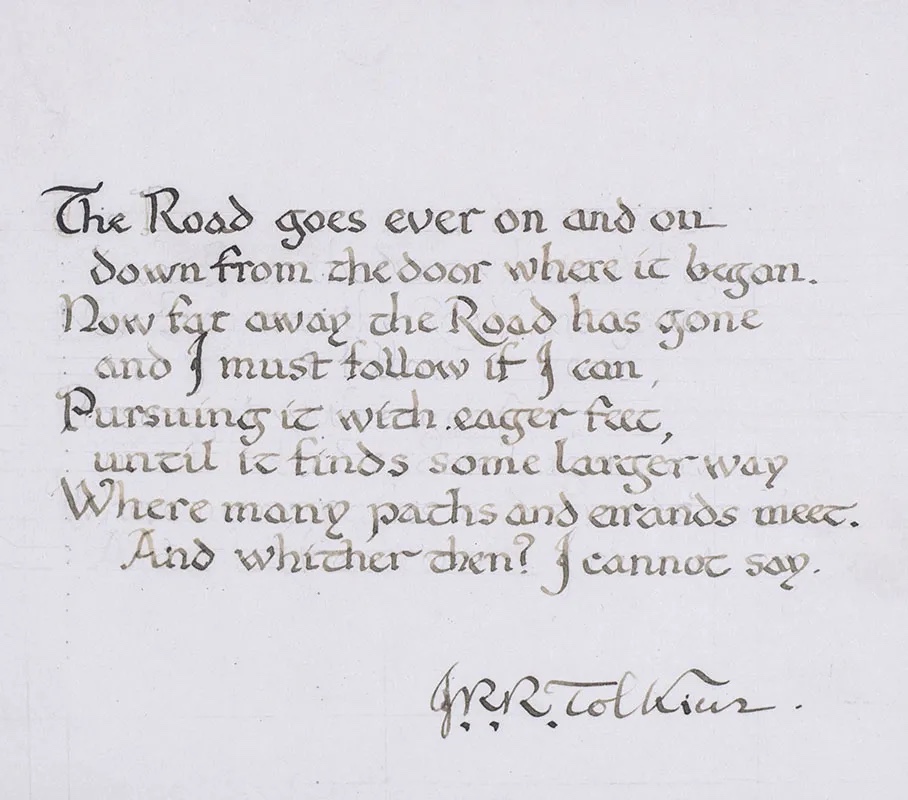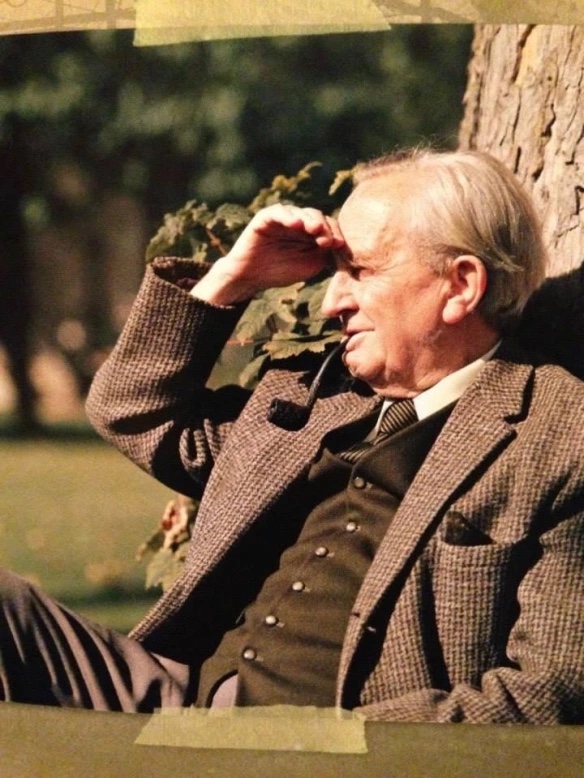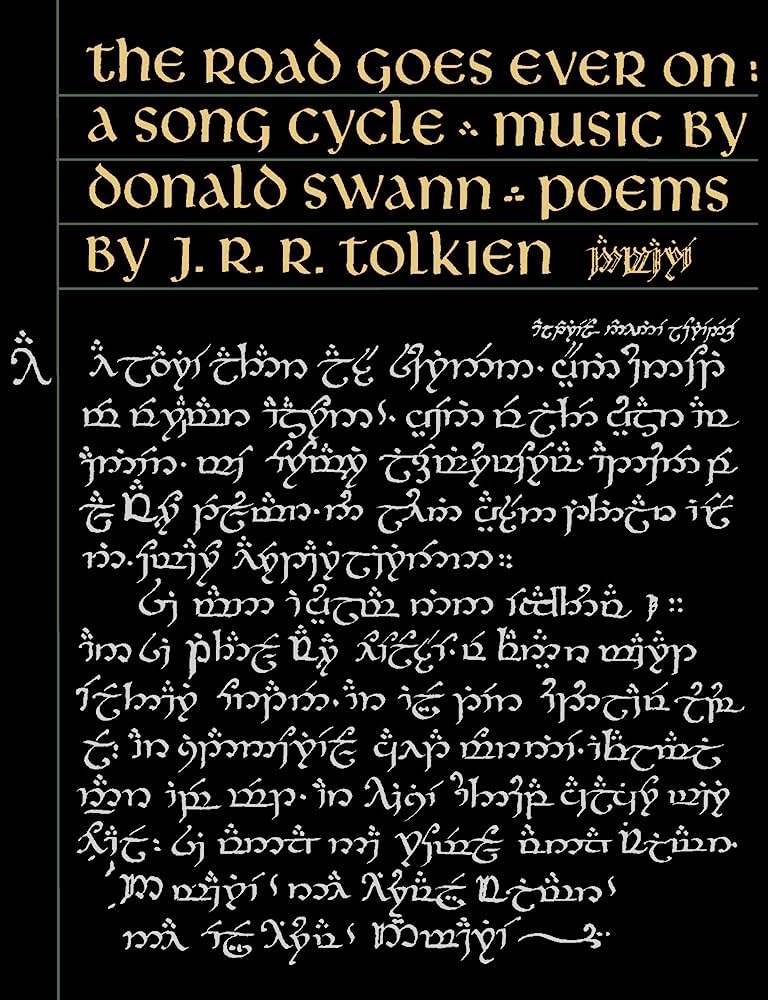
In a recent review of, I think, The Hobbit, I suggested I wasn’t so keen on Tolkien’s versifying. Whilst that occasionally holds good (for me), it’s far from universally the case.
The stuff I’m less keen on can be a bit twee. But sometimes his poems are, as in this case, sublime. This is lean, spare, and quite haunting.
The BBC Radio 4 adaptation, by Brian Sibley et al, set this verse to a brilliantly apt melancholic melody, by composer Stephen Oliver, which John Le Mesurier, as Bilbo, chants beautifully.
The version in Peter Jackson’s film is awful; way too light and fluffy – twee, in fact – despite being delivered by the wonderful Ian Holm (who played Frodo in the aforementioned radio adaptation). But it’s not the worst… oh no! See way down below, for the full horror.
The Road goes ever on and on
Down from the door where it began.
Now far ahead the Road has gone,
And I must follow, if I can,
Pursuing it with eager feet,
Until it joins some larger way
Where many paths and errands meet.
And whither then? I cannot say.
The poem, like Bilbo as he passes ‘into the night like a rustle of wind in the grass’ is, to revisit the phrase I love so much, both epic and homely. It’s also quiet, even melancholy. It’s quintessentially Tolkienian.
Most art I love, be it the writings of Kerouac, the early music of Tom Waits or Joni Mitchell, even the paintings of Guston or de Kooning, has this quality.
Apparently the Brazilian Portuguese word saudade is meant to capture or invoke just such a feeling. And verily, the bossas of Jobim, or the music of Joyce or Marcos Valle, do indeed have such qualities.

A sad footnote to the celebration of this poem itself is the appalling music by Donald Swann, the accompanist and co-conspirator in the terrific comedy/music duo that was Flanders & Swann.
Swann’s Edwardian after-dinner drawing-room recital type piano ditties not only fail to convey the right vibes, but render everything about these writings trite and ridiculous. They wash all the poetry and mystery out, replacing it with a porcelain knick-knack type of naff blandness.
Shocking!

